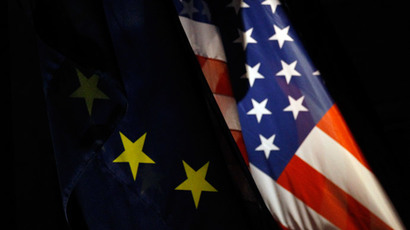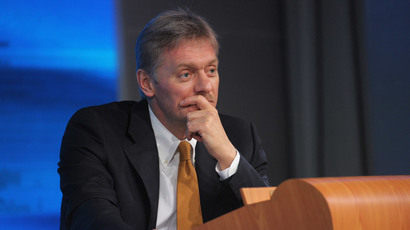EU cozies up to China, as relations with Russia sour
Chinese President Xi Jinping is wrapping up his official European tour. His hosts have pampered the head of state and his 200-strong business entourage as the two economic blocs work towards a multi-billion dollar free trade agreement.
The world’s second-biggest economy is a strategic ally for the EU, especially as relations with Moscow have become frosty over action in Ukraine.
Europe is cozying up to Chinese industry, concerned the ongoing dispute between the EU and Russia over Ukraine could affect trade relations. China is pushing a multi-billion dollar free-trade agreement with Europe’s $17 trillion economy, focusing on Germany, the most important partner within the EU. Net trade is only higher with the USA.
In return, the EU wants China to open up investment opportunities, which will attract more foreign money to China.
The tour began in the Netherlands, with legs in France, Germany, and Belgium, meeting with US President Barack Obama on the sidelines of the nuclear summit in The Hague.
Annual trade between China and the EU is $588.6 billion, according to the most recent European Commission data.
Europe wants to keep a good rapport with China, even if that means disregarding previous complaints of human rights abuse.
China is forecast to become the world’s largest economy as early as 2018, but depending on the pace of economic growth, maybe not until 2028.
The EU exports $148 billion annually to China in machinery and equipment, including automobiles from BMW and Volkswagen. The EU imports even more from China, about $280 billion per year in raw materials, electronics, clothing, and toys.
China’s annual GDP is $8.6 trillion, but grouped together the 28-state EU has an economy twice the size.
Advantage Russia
Europe may try and boost trade with China to punish Russia, but such a move may just benefit China, and have little effect on Russia.
“Sanctions and this whole uproar over Crimea is simply foolishness on the part of the EU, but the EU has nothing to gain from sanctions on Russia,” geopolitical analyst William Engdahl told RT in Berlin.
Russia has very strong ties with its eastern neighbor, about $410 billion in annual trade and several oil and gas projects in the works. The largest is a 25-year $270 billion deal between Russia’s state-owned Rosneft and China’s National Petroleum Company.
Many Russian companies have made the first move and have begun to re-orient their business towards booming eastern markets, and away from Europe and the US.
The CEO of Norilsk Nickel, Vladimir Potanin said his company won't rule out increasing supplies of nickel and palladium to China and Japan.














